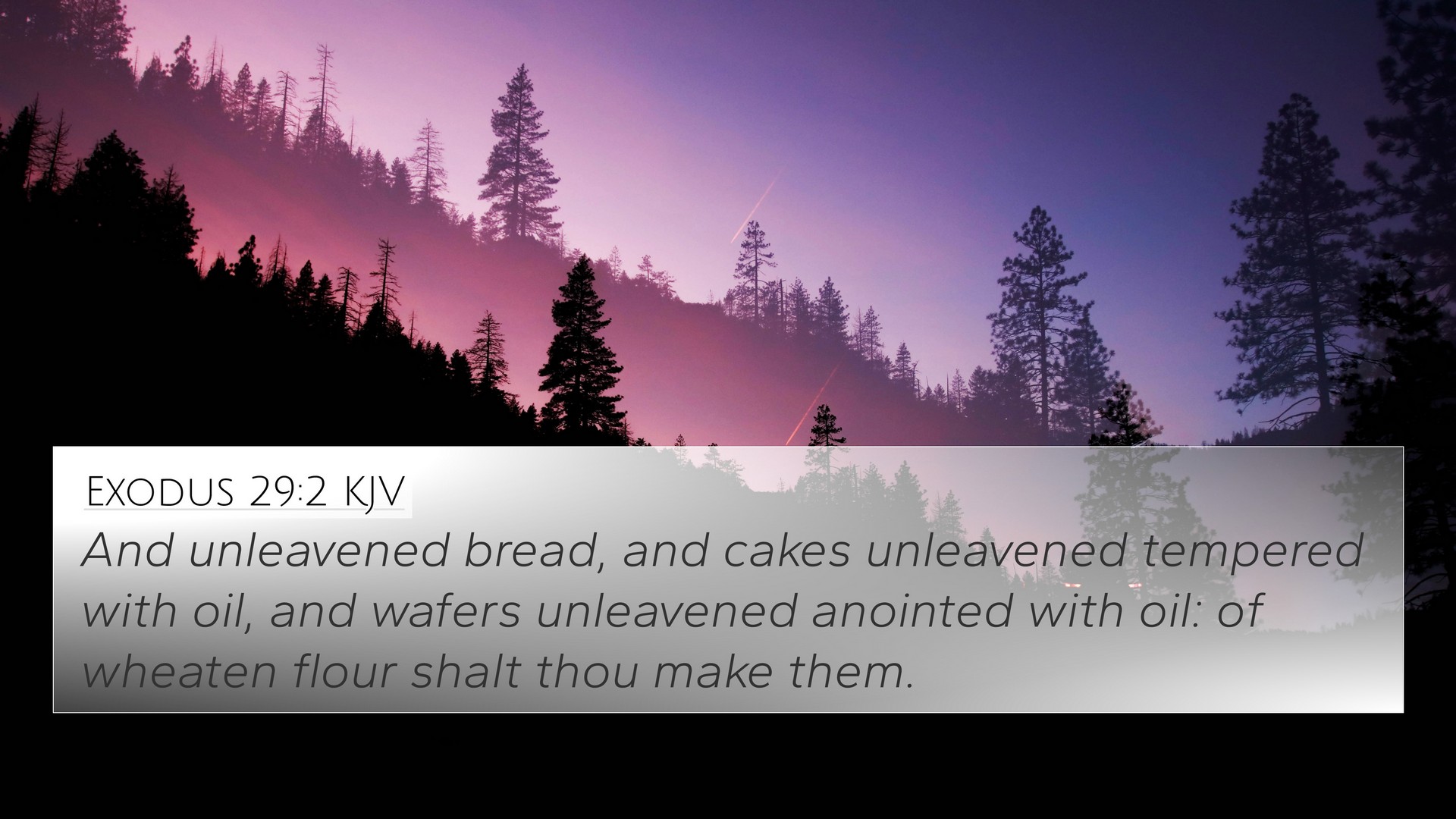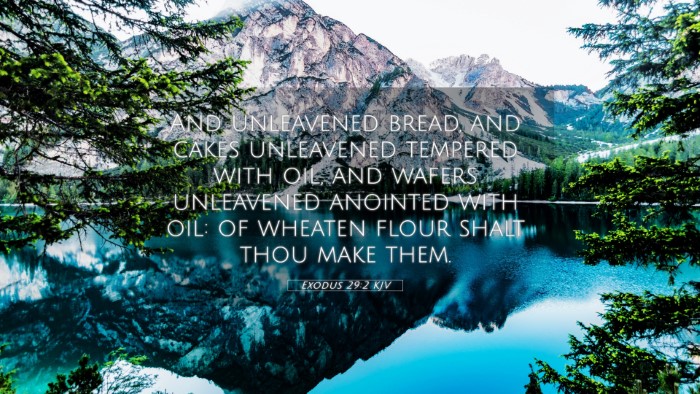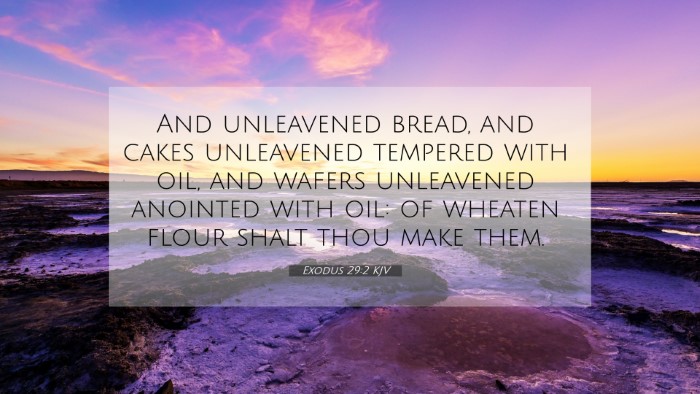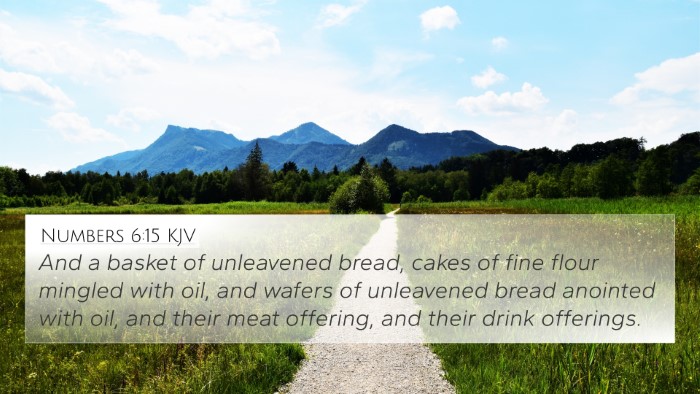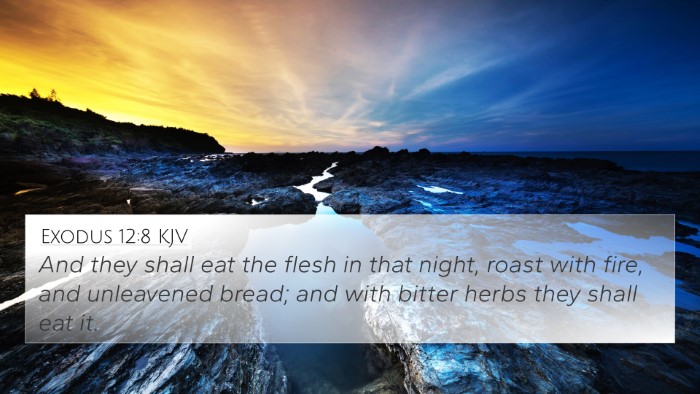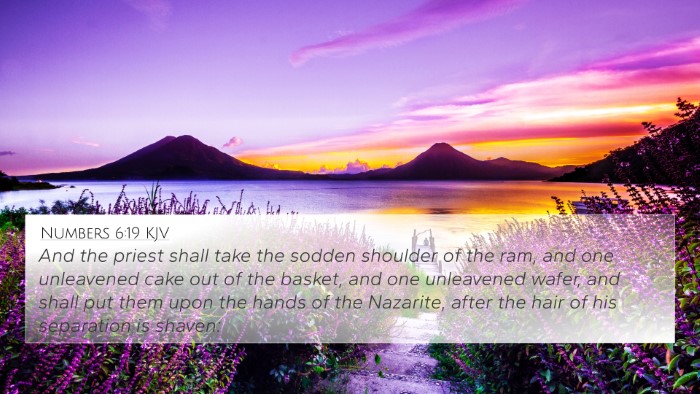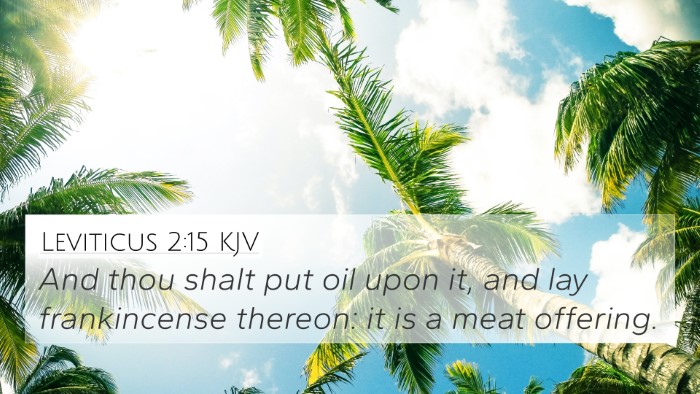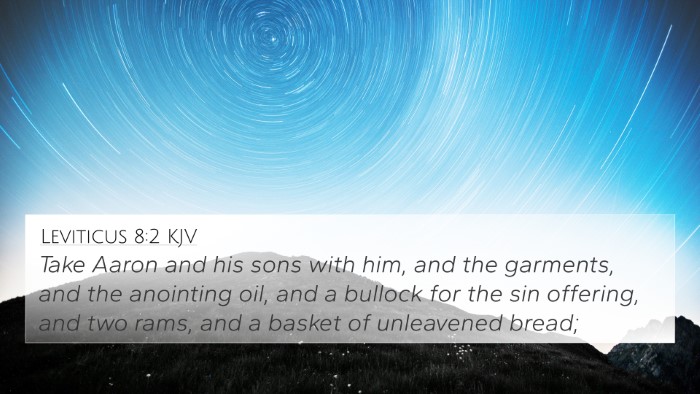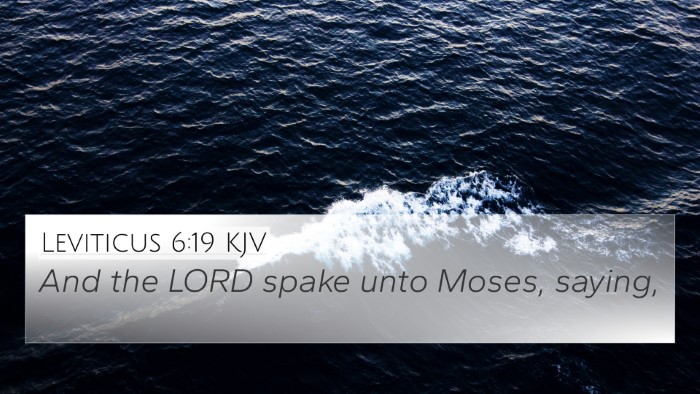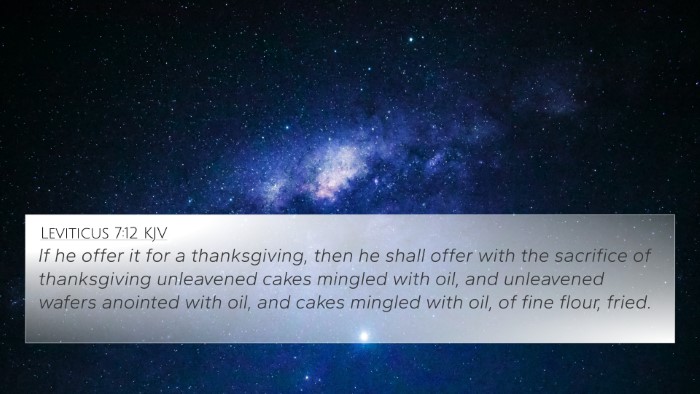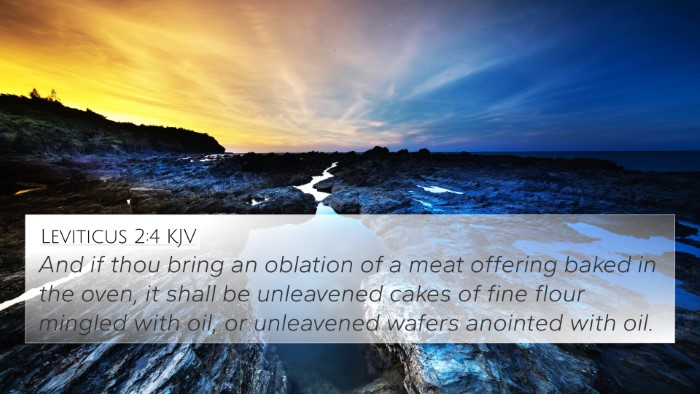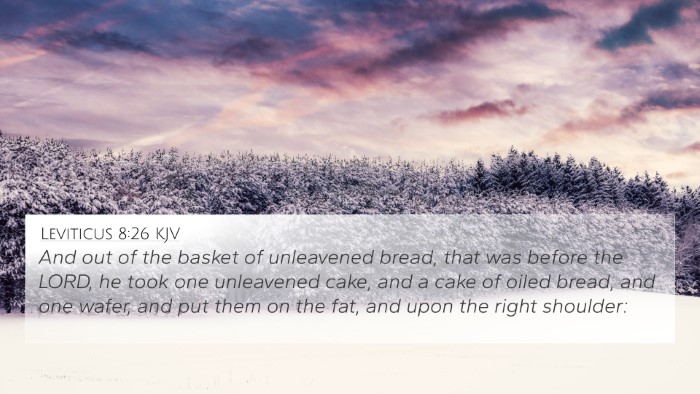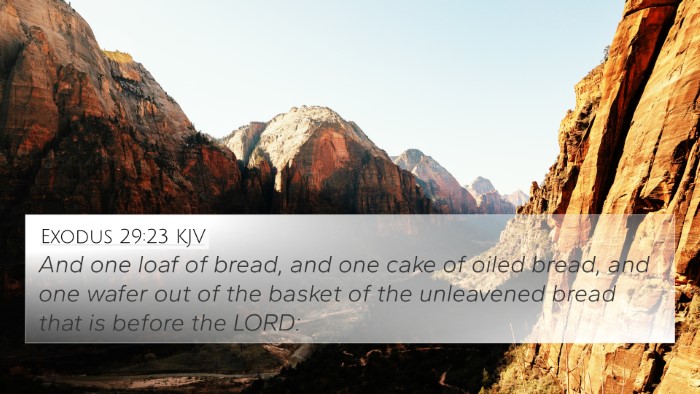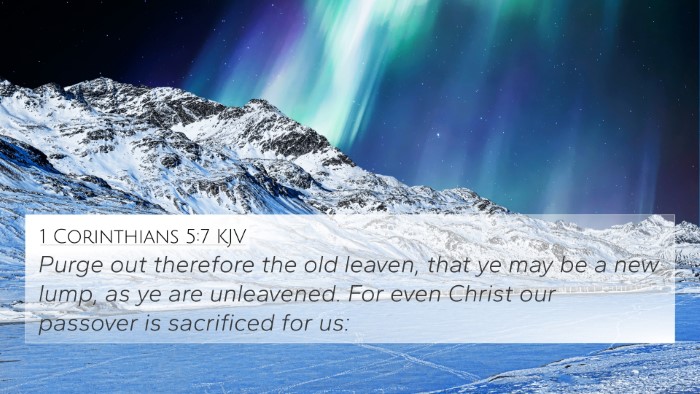Understanding Exodus 29:2
Exodus 29:2 states, "And unleavened bread, and cakes unleavened, tempered with oil, and wafers unleavened, anointed with oil: of wheat flour shalt thou make them."
Summary of Exodus 29:2
This verse is part of the instructions given by God to Moses regarding the consecration of the priests. It focuses on the specific offerings that are to be made during the anointing ceremony. The use of unleavened bread signifies purity and sanctity, illustrating the importance of holiness in the worship of God.
Interpretations from Commentaries
-
Matthew Henry:
Henry emphasizes that the choice of unleavened bread was not merely a dietary law but a deeper symbol of the absence of sin. Leaven often represents corruption and falsehood in the Scriptures. In the context of offerings, unleavened bread symbolizes the need for purity before God as the priests prepare to carry out their sacred duties.
-
Albert Barnes:
Barnes expands on how these instructions set a precedent for the treatment of sacred offerings. He indicates that the oil mixed into the breads represents the anointing of the Holy Spirit, signifying that all consecrated things should be imbued with divine purpose and power. This preparation reinforces the importance of making oneself ready to serve God.
-
Adam Clarke:
Clarke dives deeper into the significance of offerings and their preparation. He notes that these specific types of bread (unleavened and anointed with oil) serve to remind the Israelite community of their deliverance from Egypt, where they had to eat unleavened bread in haste. The act of offering such bread in the consecration ceremony connects the past deliverance with the present worship.
Cross-References
Exodus 29:2 is connected to several other Bible verses that provide deeper insights, including:
- Exodus 12:8 - Discusses the Passover meal with unleavened bread.
- Leviticus 2:4-5 - Describes offerings of flour and mixed oil.
- 1 Corinthians 5:6-8 - Speaks about the leaven metaphor in relation to sin.
- Matthew 26:17-19 - Relates to the preparation of the Passover meal.
- Luke 22:19 - Jesus breaks the bread during the Last Supper, linking back to the theme of unleavened bread.
- John 6:35 - Jesus refers to Himself as the "bread of life".
- Romans 12:1 - Offers a call to present our bodies as living sacrifices.
- Hebrews 7:27 - Jesus as a High Priest offers Himself without blemish.
- 1 Peter 2:5 - Believers are described as living stones, offering spiritual sacrifices.
- Revelation 5:8 - The prayers of believers likened to incense, reflecting worthy offerings.
Thematic Bible Verse Connections
This verse interrelates with broader themes within scripture, particularly regarding:
- Purity and Sin: The absence of leaven symbolizes the call for the faithful to eliminate sin from their lives.
- Divine Preparation: The anointing with oil serves as a reminder of the Holy Spirit's essential role in the lives of believers.
- Worship and Sacrifice: The significance of offerings in worship illustrates the necessity of presenting one’s best to God.
- Deliverance: Connections to the Exodus narrative wherein unleavened bread reminds the people of their salvation.
Tools and Methods for Cross-Referencing
In studying scripture, utilizing tools effectively can enhance understanding:
- Bible Concordance: A tool that allows you to locate passages quickly.
- Bible Cross-Reference Guide: A reference resource that connects verses across the scriptures.
- Cross-Reference Bible Study: Methods and systems designed to aid individuals in systematic bible study.
- Comprehensive Bible Cross-Reference Materials: Resources that compile extensive cross-references to aid deeper scripture understanding.
Long-Tail Keyword Context
For those looking to analyze scripture further:
- Identifying connections between Old and New Testament: Exodus 29:2 provides a link to New Testament themes of purity.
- Bible verses related to specific themes: The theme of sacrifice connects Exodus 29:2 to many scriptures regarding worship and offerings.
- Cross-referencing Psalms with New Testament teachings: Psalms often reflect on offerings and worship, aligning with the principles from Exodus.
Conclusion
Exodus 29:2 serves as a critical foundation for understanding the holiness required in worship and the significance of offerings. By cross-referencing with other scriptures, one can vastly enrich their comprehension of Biblical texts and God's continual invitation to purity and service. By employing tools for Bible cross-referencing and recognizing thematic connections, believers can deepen their insights into the scripture and grow in their faith.
